
“Purple Storm” Japanese DVD CoveDirector: Teddy Chen T
Director: Teddy Chen
Cast: Daniel Wu, Emil Chau, Kam Kwok Leung, Josie Ho, Joan Chen, Moses Chan, Patrick Tam, Eric Mo, Michael Tong, Brian Banowetz, Anthony Carpio, Theresa Lee
Running Time: 114 min.
By JJ Hatfield
“Purple Storm” is an amazing action drama that won numerous awards and critical acclaim all over Asia but never seemed to find it’s way to the U.S. audiences. Fortunately one can now find full versions with excellent subtitles, although they may have been an early press. It’s worth tracking down!
This is a very intense film that serves up an unusual plot with intriguing characters. Although there are clearly people who are doing evil, and people who are clearly doing good the motivations that drive each, and develop throughout the film are not so clear cut.
In the dark of night with only a few lights suddenly a Hong Kong Coastguard ship comes upon an unknown ship with North Korean markings, shining bright lights on it as law enforcement boards her. A sudden barrage of violence explodes and plays out with one criminal unconscious and the other escapes. When the Coastguard takes over the ship they find only dead bodies and one man in coma.
The Hong Kong Anti-Terrorist Force (ATF) becomes involved as the surviving criminal is an international terrorist and is connected to the Khmer Rouge and numerous terrorist attacks. His father is a man named Soong (Gan Kwok-Leung) who is determined to carry out some mission but the only clue they have is the head injured terrorist Todd (Daniel Wu) and a computer disk they can’t break into.
The head of the ATF Ma Li (Emil “Wakin” Chau) plays his role to perfection. By coincidence he happened to do some training in the U.S. and he was assigned to Soong as a case study thereby knowing a great deal about his enemy. This will be the most difficult challenge of his life.
The director Teddy Chan deserves credit for showing the many people that would be involved in such a situation, from the ATF members, terrorists and ancillary support. You definitely have the impression Ma Li and the situation are serious as the screen is full of vehicles and law enforcement, lights flashing. These occasional scenes go a long way to validate this nightmare. Too many movies are too cheap or too broke to have enough props and settings look real. Every time you have a confrontation there are a lot of people involved with law enforcement poised to strike.
It is obvious Soong is no run of the mill criminal. He and the small band of terrorists are highly trained spending most of their lives learning military strategy and dedicated to the party.
Whenever Soong shows up he is followed by destruction and death. The ATF discovers Soong himself kills his way into a local TV station to find out more about Todd and the man holding his son, Ma Li. Soong leaves a bomb to get their attention.
Ma Li decides they should move Todd from the hospital to ATF headquarters. He is concerned the terrorists will make an attack on the hospital to rescue Todd or kill him. After the situation escalates and Todd still has no memory they still don’t know why Soong is in Hong Kong except to kill. Todd has occasional disturbing and even terrifying visions that make no sense to him.
The ATF needs to know what’s locked up inside Todd’s mind. With millions of lives at stake Ma finally agrees to let a controversial psychiatrist named Shirley Kwan (Joan Chen) work with Todd on the subconscious level to get the information they desperately need. For Kwan she sees this as an opportunity to show what can be done through therapeutic psychiatry.
The film is really focused on the inter-play between four people. The honorable, heroic, somewhat conservative ATF leader. The heinous, murdering terrorist who will do or kill on his mission. Todd, physically and mentally traumatized. And Ai Guan, highly trained in warfare and the only one who has ever really cared about Todd.
Kwan most definitely has an enormous influence on the entire situation but it is, as should be when dealing with the mind a more subtle but undeniable effect. Her character may be in the back ground but to her credit it is felt throughout the film.
For those who might not know the Pol Pot regime in Cambodia was part of the much larger “Khmer Rouge” and “Kampuchia.” The massive takeover forced millions out of their homes and towns into scrub country to scratch out a living while providing food and goods for the wealthy. The party translated that as “to each according to the need.”
The idea supposedly was to create a “class-less” society and then everyone gets what they need – it doesn’t work. Not in this world.
Pol Pot and his band of greedy murdering mercenaries and merciless soldiers killed more than four million people. That figure is no doubt even higher.
The music is perfect. Peter Kam’s haunting score is unique and enhances the film. Arthur Wong is excellent at creating stark memories with a slight grain to add to some particularly intense scenes.
An all around excellent film!
JJ Hatfield’s Rating: 8.5/10
By Raging Gaijin
“Purple Storm” seems to be an attempt to combine the gloss and production values of a Hollywood flick with your standard Hong Kong action movie. Surprisingly, it succeeds admirably thanks to a dark story, effective performances, and solid action scenes. It’s actually one of the better HK action movies of the past six years. This could easily be recommended to fans of Benny Chan’s work.
The plot is a somewhat convoluted affair but it’s enough to propel the movie. While the elements of brainwashing and government assassins may seem more science fiction than fact, in the wake of recent events you pretty much have to take the terrorist and chemical weapons aspect seriously. One scene has a bomb going off inside a sky-rise with panicked office workers running down flights of stairs, eerily recalling 9/11. The lead villain of the film is an Osama Bin Laden-like bastard who will seemingly kill anyone for the sake of his “revolution”. All of this is either going to make watching the movie just too uncomfortable for some people, or make it seem more relevant to others. I fall in the latter category but just know that “Purple Storm” is a film that deals heavily with the concept of terrorism.
The performances are solid all around. This was one of Daniel Wu’s first roles so I don’t want to judge him too harshly. He’s gone on to give better performances but he’s still decent in the lead role. Emil Chow is very effective as the leader of the Hong Kong Anti-Terrorist Force. I know his character has taken a lot of criticism for being just as psychopathic as the terrorists he chases but I enjoyed him. The only thing questionable is how many of his team members die during battles; it seemed like there’d be none of them left by the end of the movie. That said, he’s quite good as a no-nonsense, by-the-books conservative cop. Another notable performance was Kam Kwak-Leung as the terrorist leader. He was icy cold and pure evil but still delusional enough to believe in his own insane ideals just what the part called for.
On the action front, “Purple Storm” delivers with plenty of visceral shoot-outs featuring wild choreography. This movie doesn’t hold back on the violence but it knows when to stop and develop the story. Teddy Chan does an excellent job behind the camera. He puts the attention on the characters rather than the movie’s slick look, which is a definite plus. You never get the sense he’s saying, “Hey, look at our big budget!” The focus is on Daniel Wu’s internal struggle of beliefs, and it makes the movie that much better.
I enjoyed this film a lot more than Teddy Chan’s previous film “Downtown Torpedoes”. He’s shown definite improvement in balancing story and action, and creating a film that engages viewers at all times. While not quite as good as “Time and Tide”, “Purple Storm” is a solid Hong Kong action flick in its own right. If a very serious, psychologically dense action movie about terrorism is something you think you could get into, then this is definitely worth watching.
Raging Gaijin’s Rating: 7/10
By Joe909
Purple Storm is the most “Hollywood” Hong Kong movie I’ve seen. Everything from the theme of redemption to the hokey soundtrack seems straight out of a Jerry Bruckheimer joint. Daniel Wu is Todd, a Cambodian terrorist who was apparently raised around the world by his Osama Bin Laden-type father. On his way into Hong Kong to hide a new weapon, Todd is struck by amnesia, and taken captive by the police.
The chief inspector, Li, is probably the most unlikable lead character I’ve ever come across. Through the whole film he has this pinched expression on his face, like he has to take a massive shit, or something. He’s mad all the time, he’s so dedicated to his job that he can think of nothing else, and the producers intend his mindless devotion to maintaining law and order to be seen as just as psychotic as Todd’s fathers’ devotion to his Khmer ideals; but still, I found Li to be a bit overdone.
Li has the sexy police psychiatrist hypnotize Todd into believing he’s an undercover cop, and what follows is an action-filled melodrama, as Todd goes through several grating doubts of sanity, each more annoying than the last, as Daniel Wu has this tendency to groan “urrgh!” throughout each of these bouts, to let us know that his character is in torment; but it sounds more like Bruce Banner about to morph into the Incredible Hulk. Of course, Todd finally comes to grips with himself, just in time for the redemption theme to really rear its head. During the spectacular climax, Todd vindicates himself of past evils, while beating the shit out of a lot of thugs.
Plot-wise, the film is very reminiscent of “Shiri,” but since Purple Storm came before that movie, I guess it’s the other way around. Even Inspector Li looks like the main cop in “Shiri.” But who cares about plot; this is an action movie, right? The action scenes leave little to be desired. Lots of gunplay (featuring a variety of weapons), as well as a healthy dose of martial arts, all of which are choreographed just as well as flicks from HK film’s new wave golden age.
One funny instance in the film is that the name of the biochemical substance used by the terrorists is obviously “Purple Rain,” not “Purple Storm.” This is how the substance is referred to in the dialog, but, of course, the subs and film title are different. I guess the producers were afraid Prince’s lawyers would sue.
Joe909’s Rating: 7/10
By Numskull
Saying that Purple Storm crosses Hong Kong style with the polish of a Hollywood action movie would be incredibly bland, trite, and vague, and make the critic sound like some lazy hack who knows almost nothing about Hong Kong cinema… but, dammit, it’s the truth. Director Teddy Chen (The Accidental Spy) revels in the film’s big budget and universally appealing, yet solid and intelligent screenplay and delivers a strong action film that rivals A Better Tomorrow in terms of being a great introductory selection for people as yet unfamiliar with Hong Kong film. The storyline has just the right level of complexity; Memento it ain’t, but it’s a hell of a lot more well thought out than Collateral Damage or some shit like that. Teddy Chen is a very able director who brings out the best in the entire cast, especially Daniel Wu, superb as Todd, an amnesiac terrorist getting brainwashed into thinking he’s a secret government agent. Despite the inherent uncertainty and vulnerability of his character, he manages to be dignified even while pissing in his pants.
Thankfully, Purple Storm doesn’t go into tiresome diatribes about the questionable morality of filling a person’s head with lies for the greater good while Todd’s fictitious past is being constructed. That matter is left to the audience. The film is about more than cops trying to stop Cambodian radicals from unleashing a deadly substance that kills people and turns them purple (and, by extension, gay… at least according to Jerry Falwell), but generic action movie themes still have a strong enough presence to appeal to Joe Average. The violence isn’t exactly in short supply, but it refrains from going really overboard and thus alienating more wimpy… uh, I mean sensitive viewers.
Very slick, well put-together film. A good one to show to fans of The Rock and so forth, and, perhaps, lead them deeper into the realm of Hong Kong cinema, from which there is no return…
Numskull’s Rating: 8/10
By Reefer
Todd has behavioral amnesia, which means he still knows how to fire a gun or type but cannot remember who he is. Todd is a member of a Khmer Rouge terrorist group and unknowingly possesses the key to a devastating plot to start a revolution. Soong, the leader of the terrorists, will stop at nothing to get him back. Meanwhile, an anti-terrorism chief plans to convince Todd that he actually works for the good guys and he’s undercover.
This is the intriguing premise of Purple Storm, a largely Americanized action picture from Teddy Chen. But unlike a lot of U.S. efforts, this movie has a brain and a soul. Every character is well drawn and real. No cardboard cut outs in this film. Even the cop they convinced to act as Todd’s girlfriend has emotional depth. This is a huge asset to the story. Characters that we as an audience cares about.
Daniel Wu’s performance as Todd is what holds the entire movie together. As the movie unfolds, Todd must piece together his horrible past and ultimately choose sides. The success of this movie depends on the audience believing Todd’s crisis. Emil Chow also scores big points as the anti-terrorism force’s honorable leader. Before this, I considered him to be a fine comedic actor (Gorgeous), but he proves here to charismatic and believable as action star.
Finally, many of the action scenes, though murky at some points, are quite thrilling. Mostly shoot-outs, they move the story along instead of delaying it. Some of the FX look quite expensive (something I attribute to U.S. influence.
Reefer’s Rating: 9/10
By Klotera
This is a pretty standard action/spy/thriller. It’s got pretty high production values and a very solid cast, including decent performances from Daniel Wu and Emil Chow. The interesting thing in this film is the questions it brings up about the morality of “reprogramming” a bad person to be good, which is basically what they do to Wu after his amnesia. Is it okay to make a person become something he wasn’t if he was a bad person? It’ll make you think. Unfortunately, other than that, the story does nothing to really draw viewers in and you never really feel for any of the characters.
As such, it falls back down to more of a standard film in its genre. Action is solid, but nothing amazing. Pretty standard for the film type. If you like this type of film, you could do much worse than “Purple Storm”. It certainly makes you question the issues. It just lacks a certain something to make it truly stand out.
Klotera’s Rating: 7/10

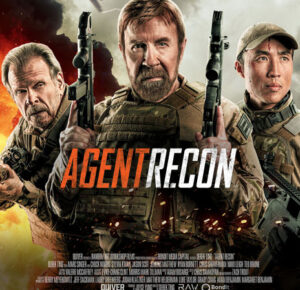
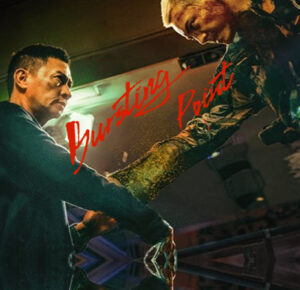
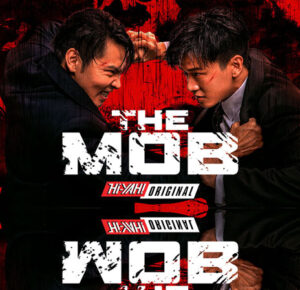
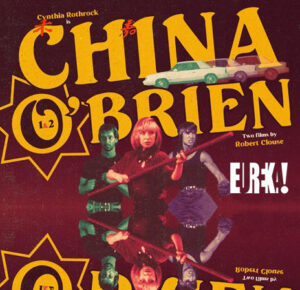

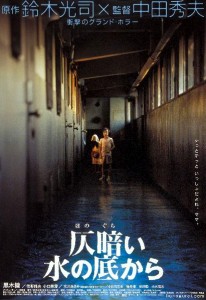











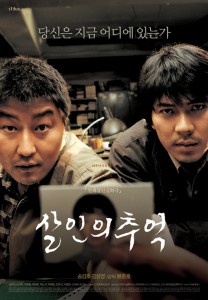




3 Comments